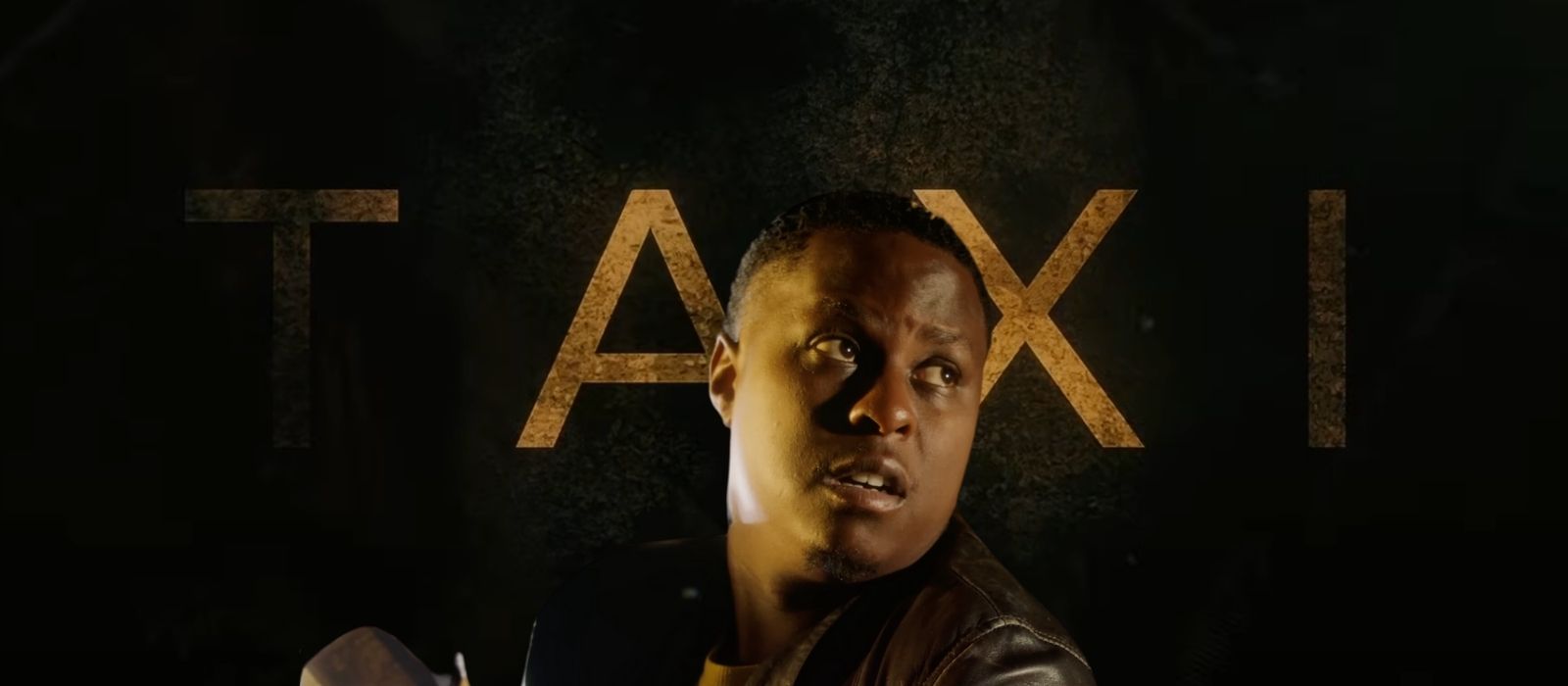
I couldn’t resist watching this short film for several reasons, notably because it’s been extensively promoted on social media, many of the people involved are acquaintances of mine, and my Editor requested a review.
TAXI is a 2024 production from New York Film Academy alumnus Jonathan Samukange’s Dream Haus studio. Starring yesteryear luminary Munya Chidzonga (Lobola, The Gentleman), the short can be labeled as a multi-genre experimental. It was written by a record seven writers, and was directed by Samukange who also did the post production work.
The story revolves around the character of Chidzonga, an irresponsible thirty year old Taxi driver living with his mum, who has his world turned when a mysterious passenger gives him an offer he couldn’t resist, according to the by-line in the description box of the upload on YouTube.
I have to make reference to the description box because that’s the only place where I could find clues for what the story was really about. This is not to say the story was bad, but I just found it too hard a nut to crack for my simple consumer mind. We will come back to this later, for now, let’s revel in the glories of the film.
Cinematography is “Taxi”s biggest achievement. The picture was carefully curated for cinema. Its crispy texture and golden hue looks like something you would love to eat for breakfast. The mise en scence, although a tad too fast, is also quiet on the remarkable side. Great job in sound designing and scoring. Sound is usually the damper in the cinematic ambitions of most local productions. Well done to the “Taxi” crew for having that figured out ahead of time.
VFX make-up was exceptional. I decoded the magic of Mathias Jack in the handiwork, and I thought I saw his name credited under make-up (the text for the credits was faint).
Overally, “Taxi” is a good production which answers the question its producers had when they were making the film: is Zimbabwe cable or ready for the production of Netflix quality content? Yes.
TOO MANY HANDS ON THE BROTH
With the glorious boxes all ticked and out of the way, now let’s look at the inglorious. I will try to be honest and balanced on this most important quarter of the critique.
While having a wide panel of writers on a project can help bring diversity and vibe to a story, I feel it didn’t work well on “Taxi”. The majority of the writers on the seven-member panel have registered illustrious performances and award winning careers elsewhere in their individual capacities. Crowding them on a ten page script (judging by the total length of the film) wasn’t the brightest idea. Two writers, at most, would have been sufficient to get the job done.
This is not to say the writers in their bunch did a shoddy job, far from it. The script feels nice, too nice, in fact. Which I feel is the problem: they focused a lot on being perfect at the expense of the story. Talk of having too many chef hands cooking the evening broth. Everyone focusing on their own signature condiments in the soup, but no one thinking about the main ingredient making the soup.
This perfectionism craze, if I may call it that, permeates across all the departments of the project.
A lot of extra effort was invested in making everything clinically uptight and astute, from a well structured non-linear script to chisiled cinematography. All and everything in order, but the story. Nobody seemed to remember they were telling a story!
I normally don’t review a film whose storyline I don’t understand. I always try to make myself familiar with the “odds and ends” of the story before commiting to critique, but with “Taxi”, I must admit, the story drove past my head, pun intended.
Efforts to get an insight into the storyline were fruitless after my requests for the storyline were “blue ticked” by the makers of the film.
I had to watch the film three times in order to untangle the story threads, but still, that wasn’t enough to solve the cryptic puzzle that is “Taxi”.
Don’t get it wrong; cryptic films laced with symbols and motifs for the mind to decipher are quite popular, but I’m not sure wether “Taxi” was being deliberately cryptic or it was a case of not so good exposition.
The cryptiness of the film also puts a dent on the aspect of “Affect” or “Carthasis” from an audience’s perspective. In film or storytelling in general, “Affect” is the magic of emotional response evoked in an audience watching or reading the story. It immerses the audience in the story, making them momentarily lost in the world of make-believe.
Without prejudice or malice, the whole production could pass as a trailer for a blockbuster coming soon, than an actual tale with a beginning, a middle and an end.
But I could be wrong. Maybe to some, the storyline isn’t that too difficult to grasp, the plots quite enunciated and the exposition well out there. Or the story is just an enigma for the indulgence of pundits wearing pointed hats and nerdy glasses.
I will watch it again, and will also recommend it to anyone who hasn’t watched it. It’s available on YouTube via the link below. Overall mark out of 10? I will give it a 5, which is a “Good”.


